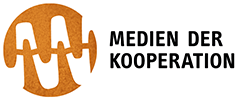
MoneyLab #6 Conference
Infrastructures of Money
University of Siegen | 7-8 March 2019
About
The MoneyLab network was founded by the Institute of Network Cultures in Amsterdam. MoneyLab considers, critiques and intervenes within our new digital economy. It is a network of artists, activists, and geeks experimenting with forms of financial democratisation in contexts such as crowdfunding, cryptocurrencies and the blockchain, cashless society, and Universal Basic Income. We question persistent beliefs, from Calvinist austerity, growth, and up-scaling, to trustless automated decision-making and freedom on the dark web, from (anarcho-)capitalist dreams of the days of yore to the special sauce of neoliberal entrepreneurialism and its right-wing libertarian counterparts.
The black box of finance has been etched into the imagination of the public and there has rarely been a more generous context to manifest working alternatives for the 99%. Cooperative platforms, decentralised technologies and direct democracy movements indicate profound attempts to rebalance the distribution of wealth and power. As resistance towards poverty, precarity, tax havens, algorithmic speculation, and financial crimes grows, the challenge ahead is to find ways to improve and sustain such financial experiments and to intervene in current debates both inside and outside of our established political systems.
Before arriving in Siegen, MoneyLab has included 5 international conferences and 2 globally distributed readers:
MoneyLab #1 – Coining Alternatives: Amsterdam, 2014
MoneyLab #2 – Economies of Dissent: Amsterdam, 2015
MoneyLab Reader: An Intervention in Digital Economy, 2015
MoneyLab #3 – Failing Better: Amsterdam, 2016
MoneyLab Reader #2: Overcoming the Hype, 2018
MoneyLab #4 – Art, Culture, and Financial Activism: London, 2018
MoneyLab #5 – Matters of Currency: Buffalo, NY, 2018
Call for Contributions-MoneyLab #6 [ended]
Program
Thursday, 7 March 2019 |
||
| 9:30 |
Doors open & registration
|
|
|
10:00 – 12:30 Moderation: Geert Lovink Room: Museum für Gegenwartskunst, Lecture Hall |
Anthropology of Money Sociality, like everything else, can be monetised. Are we in need of a new general monetary theory? Money is as much a question of practice as it is of social infrastructure. Things are bought and sold. Money changes hands. The anthropology of money has a long tradition of exploring these localised practices of exchange through ethnographic inquiries into the relations between money, gift and credit. The quantified data units of platforms and their new digital tokens of value introduce new standards of exchange and challenge anthropologists to account for situated practices and global infrastructures at the same time. How do these changing infrastructures alter monetary practices and our account of value?
|
|
| 12:00 – 13:00 |
Lunch Buffet Combined with an opening of “The Attention Fair” by Julia Janssen at 12:30, room US-A 234 |
|
|
13:30 – 15:30 Moderation: Patricia de Vries Room: Museum für Gegenwartskunst, Lecture Hall |
Aesthetics of Financial Flows There is a rich tradition of visualising financial flows going all the way back to the 1920s. In the wake of the 2008 financial crash, understanding the often opaque operations of finance suddenly became more urgent. Visualisation practices have since been taken up by a broad array of artists and activists. By following internet cables, dissecting financial architecture, and mapping the timelines of flash crashes, these maps have given us renewed insights into a notoriously complex and incredibly high speed sector. But what do we do after the mapping is over? Are there routes from the visual to the political? How can knowledge of these systems lead to new regulation, local action and increased agency?
|
|
| 15:30 – 16:00 | Coffee | |
|
16:00 – 18:00 Moderation: Sebastian Gießmann Room: Museum für Gegenwartskunst, Lecture Hall |
Finance, Automation and Surveillance Financial surveillance is still on its way up. Though practices of surveillance date back to the 19th century, there is a new intensity and ubiquity to them today. Think of transnational transparency regimes (Basel III), think of new EU regulations concerning identification in payments technologies, think of credit card transaction leaks that are quickly de-anonymised by researchers. These developments foreground the fact that technologies of accounting, scoring, and subjectivation are at the core of digital and mobile network media now. How can we think about the new distributedness and temporalisation of monetary practices? And how does machine learning transform monetary valuation, algo-trading, fintech platforms, their APIs, and financial decision-making? As regimes that automatically intervene in real-time transactions, such technologies establish, perpetuate, and remediate “orders of worth”. Of course, this desire for automation has been part of every computerisation movement. But we also recognise that money often serves as a medium of heteromation and dis-automation. Financial surveillance is frequently accompanied by infrastructural frictions and calls for accountability. We want to hear about
|
|
|
||||||||||||||||||||
Veranstaltungsort
Unteres Schloss 1
57072 Siegen


